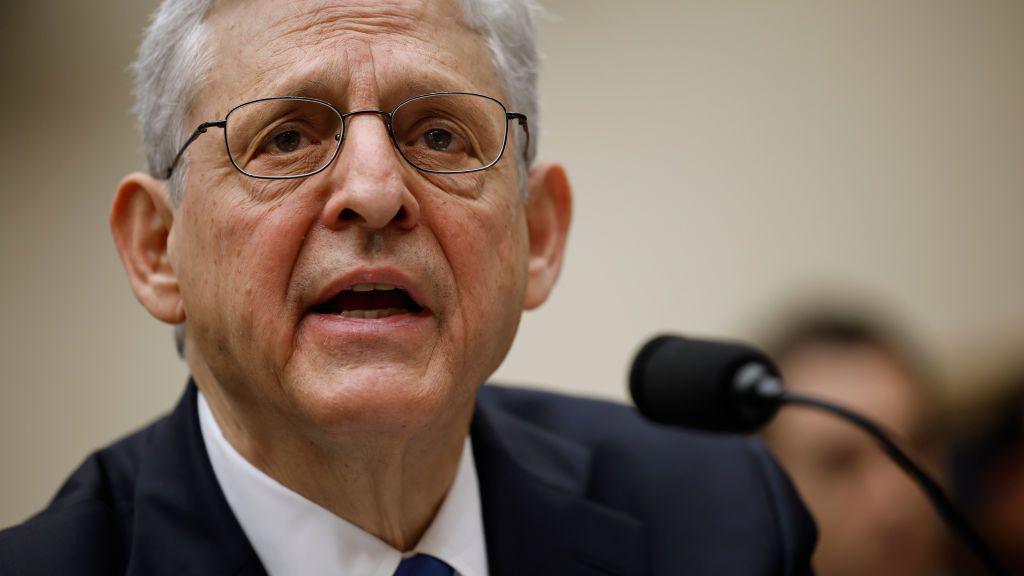US declines to charge Merrick Garland for contempt

- Published
The US Department of Justice (DoJ) has declined to press charges against Attorney General Merrick Garland for contempt of Congress after the House of Representatives narrowly voted to punish him for his refusal to hand over audio tapes from an investigation into President Joe Biden.
The Republican-controlled House voted 216-207 on Wednesday to recommend that the DoJ, the department that Mr Garland oversees, file criminal charges against America's top law enforcement officer.
The move stems from Mr Garland's refusal to turn over to Republican lawmakers recorded interviews from a justice department probe of Mr Biden's handling of classified documents.
In a letter sent to Republican Speaker of the House Mike Johnson on Friday, a top DoJ official said the department found that Mr Garland's actions "do not constitute a crime". Mr Johnson called the move "sadly predictable".
Carlos Felipe Uriarte, an assistant attorney general, said it was a "longstanding position" of the department not to bring charges in cases where the president has made the decision to conceal the requested material using his power of executive privilege.
Executive privilege is legal doctrine that grants presidents the right to withhold executive branch information from the other two branches of US government.
"Accordingly the Department will not bring the congressional contempt citation before a grand jury or take any other action to prosecute the Attorney General," Mr Uriarte wrote.
The House Speaker said he would go to federal court to force the attorney general to hand over the audio.
Mr Johnson called the DoJ decision ÔÇ£another example of the two-tiered system of justice brought to us by the Biden AdministrationÔÇØ.
He cited the case of two ex-Trump aides, Steve Bannon and Peter Navarro, who tried to cite executive privilege in flouting congressional subpoenas. They were found in contempt of Congress, criminally prosecuted and sentenced to prison terms.
Last month, Mr Biden invoked executive privilege to block congressional Republicans from accessing tapes of his interview with Special Counsel Robert Hur, who was investigating his retention of classified documents after he served as vice-president.
Mr Biden turned in the documents once they had been discovered. The DoJ special counsel who interviewed the Democratic US president said that although he had retained the files, he should not be charged as jurors would probably view him as a "well-meaning, elderly man with a poor memory".
The White House said that Republicans had no legitimate need to access the five hours of audio, since a transcript had already been released. They argued that Republicans wanted to use the audio for campaign attack ads against Mr Biden as he seeks his second term as president this November.
As the oldest US president, 81-year-old Mr Biden's age is seen by opponents as a key political vulnerability. His Republican challenger, Donald Trump, just turned 78.
Trump is facing a federal prosecution on charges of having retained documents that were meant to be handed over to government archivists after he left office.
He allegedly attempted to obstruct justice by hiding the classified memos after he had been ordered to submit them.
Two other attorneys general have been held in contempt of Congress in recent years.
In both cases Eric Holder, a Democrat, and Bill Barr, a Republican, received similar letters from the DoJ stating that prosecutors were declining to press charges.
Related topics
- Published12 June
- Published12 June 2023